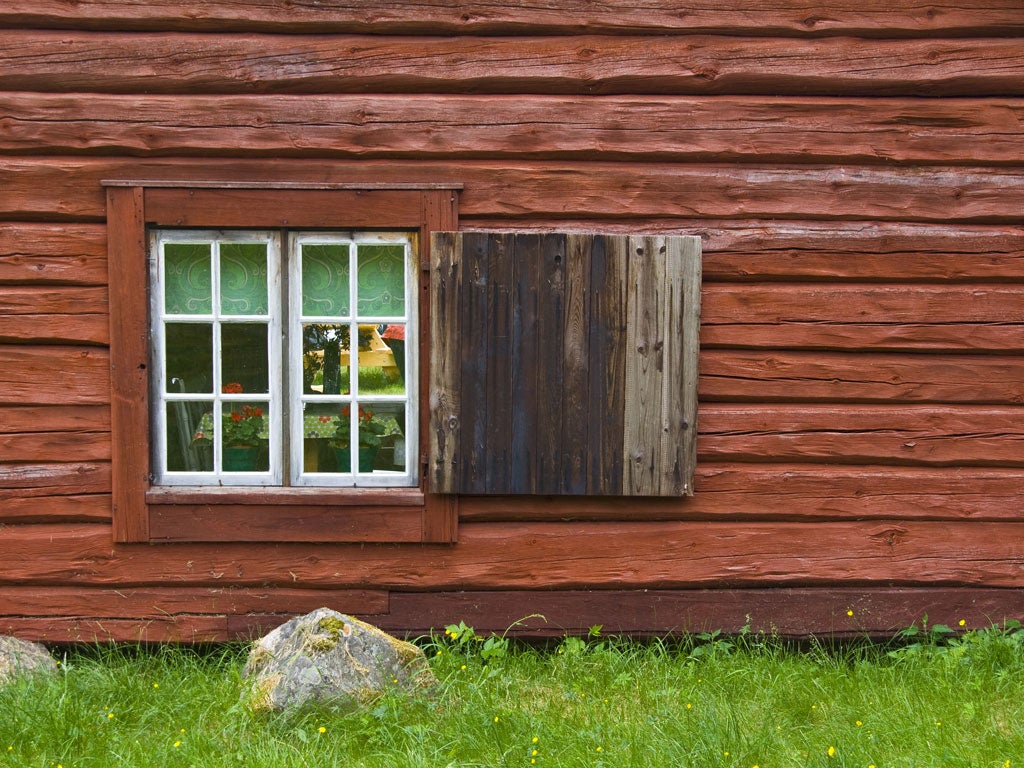Kate Humble: How travel can transplant Canada to Cumbria
The view from a log cabin

I am writing this in a log cabin. There is something both romantic and pioneering about a log cabin. This is a proper, authentic one made of long thick trunks of honey-coloured larch. Each has the small divots and imperfections that tell you this was handmade, the bark stripped off using old-fashioned tools and human effort. I can't find a single nail – it seems to stand as a result of gravity and brilliant engineering. The result is a thing of almost sculptural beauty.
Yet this log cabin is not in the depths of a Canadian national park or somewhere amid the vast blankness of eastern Siberia: it's a rented holiday cottage in the Eden Valley in northern England, the part of Cumbria that wise weekenders will choose this Easter in preference to the overcrowded Lake District. And it was built by a bloke from Devon.
The cabin also happens to be close to the nation's finest railways, the Settle-to-Carlisle line, which invites people to survey the glorious isolation of the Pennines – and hop off to explore from remote stations that someone cares for enough to deck with fresh flowers. As I sit looking out at the trees and the river, I'm reminded of a time I was working as a journalist in Toronto. Someone I needed to interview suggested that we meet in a bookshop across town from where I was staying. I arrived early and, while wandering idly between the shelves, happened upon a book titled How to Build a Log Cabin.
I bought it for my husband Ludo, hoping that one day he'd feel inspired to do just that. (So far, he has resisted, although I hope the joys of life amid woodwork that we're experiencing this week may convince him.)
However, as I sit here in Cumbria with the freedom for my mind to roam, it's the taxi ride to the shop that I remember most vividly.
"Where are you from?" asked the driver, as he nosed out into the thick evening traffic that congests Canada's biggest city. "The UK," I replied. "Can you tell me the latest news from Bosnia?" His question took me by surprise. It was pertinent – the former Yugoslavia was disintegrating, its break-up now irreversible and the crisis in Bosnia-Herzegovina was at its peak. But we were in Toronto; a cosmopolitan city, yes, but a long way from Bosnia and the driver was not from Eastern Europe but West Africa.
As the journey progressed, it was clear that this was not a simple case of geographical misconception, imagining Sarajevo was just down the road from Streatham. We discussed not just Yugoslavia, but also the downfall of Mrs Thatcher and the rise of New Labour.
As I dug in my purse for the fare, I asked why he was a taxi driver. He laughed. "I was Nigeria's finance minister, but we lost the election and I came here. I'll go back when it's time to fight the next one."
Here in Cumbria, I wonder if he did go back. I believe that the current finance minister in Nigeria is a woman named Ngozi Okonjo-Iweala, so he evidently hasn't got his job back yet. But at least my taxi driver was earning money; one of his political predecessors, General Yakubu "Jack" Gowon, came to England after he was overthrown as Nigerian leader and took a doctorate at the University of Warwick, where he regularly picked up hitch-hiking fellow students.
One of the many powers of travel is to transplant and reinterpret: Nigerian politicians into drivers, and Cumbrian valleys into Nordic enclaves.
Join our commenting forum
Join thought-provoking conversations, follow other Independent readers and see their replies
Comments
Bookmark popover
Removed from bookmarks